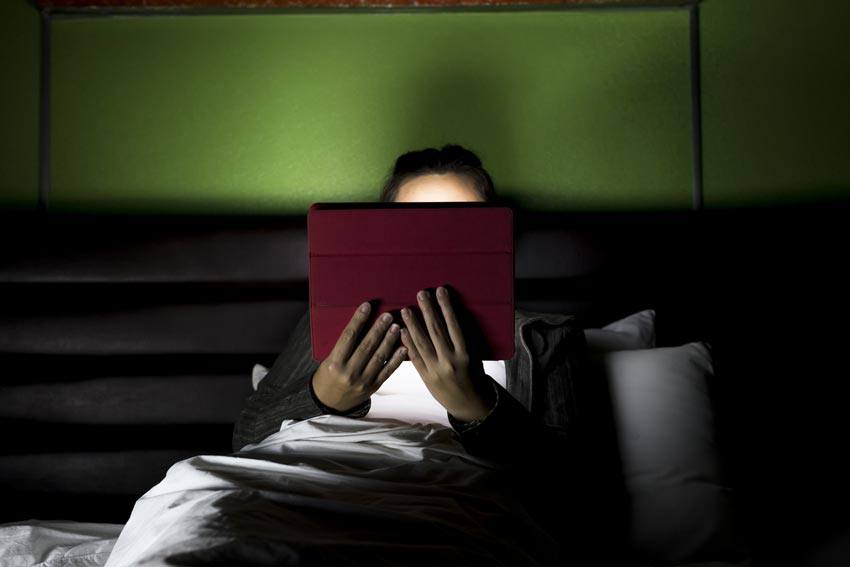Why travellers prefer Blue Cross
- Canada's #1 travel insurance brand and recognized worldwide
- Over 75 years of expertise in insurance
- $5 million travel insurance coverage, with or without deductible
- Flexible and affordable travel insurance solutions
- Free quote available online
- Travel assistance available 24/7 for any emergency, anywhere you travel

Reading on a tablet before bed impacts sleep quality
Published on: October 1, 2016
It’s important to give your body and mind time to decompress before going to sleep. This downtime helps you feel more relaxed, and it can help you fall asleep more easily and get a more restful sleep.
However, for many of us, technology is negatively affecting our sleeping habits. We watch TV, play on our smartphones and read on our tablets right before we go to bed.
A study has found what many of us have already suspected: Using our phones and tablets before bed negatively affects our sleep. A study from the University of Bergen found that people who read on an iPad about 30 minutes before going to bed felt less sleepy and had different brain activity than those who read from a traditional paper book.
"Since light has an alerting effect, we predicted a lower sleepiness in the iPad condition at bedtime compared to the book condition," says lead author Janne Grønli in the Toronto Sun. She adds that “it was surprising that the iPad light did not delay sleep initiation. We found a delay of 30 minutes in the generation of the restorative slow waves during sleep in the iPad condition.”
Here are the key findings of the study:
- Using an iPad right before going to sleep decreases sleepiness
- 30 minutes of reading on an iPad before bed delays slow brain wave activity, which is associated with deep sleep
- Even in dimmed light conditions, blue-enriched light can have a direct impact on sleep brain wave activity
- Using electronic devices before bed may affect alertness and sleep
“Participants said they felt sleepier when reading the physical book, as reported in Sleep Medicine. After reading from an iPad, EEG readings showed delayed and reduced slow wave activity, representing deep sleep, in the brain after sleep onset compared to when the participants had been reading from a book, ” reports Kathryn Doyle in the Toronto Sun. When the eye registers blue light, the brain interprets this as a signal of daylight and triggers wakefulness.
The key takeaway from the study is that all types of electronic devices, including tablets and smartphones, have an impact on alertness and sleep.
How to minimize the effects of electronic devices on sleep quality
- Avoid using tablets and smartphones at least 30 minutes before going to bed
- Avoid having these devices in your bedroom to lessen thetemptation of using them
- Use your bedroom for sleep only
- If you enjoy reading at night, choose a paper book
- Set daily time limits for tablet and technology use
If you enjoy reading from your tablet and are having trouble sleeping at night, give these tips a try.